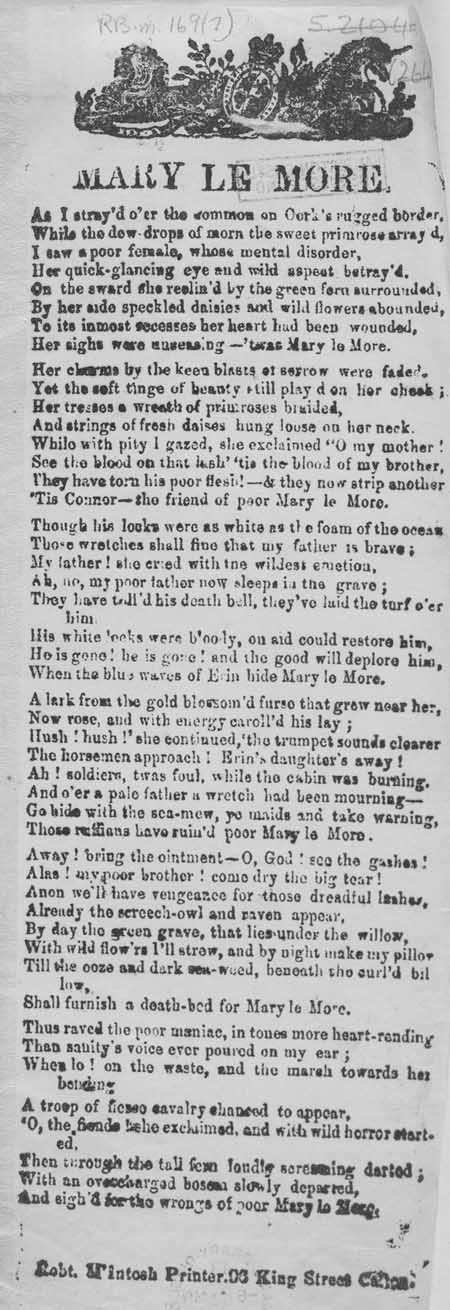Commentary
This ballad begins: 'As I stray'd o'er the common on Cork's rugged border, / While the dew-drops of morn the sweet primrose array'd, / I saw a poor female, whose mental disorder / Her quick-glancing eye and wild aspect betray'd.' It was published by Robert McIntosh of King Street, Calton, Glasgow, and includes an illustration at the top of the sheet. This tragic ballad tells of the eviction of Mary Le More and her family, and how they suffered at the hands of a band of brutal soldiers. The work is now widely attributed to the Liverpool abolitionist poet Edward Rushton (1756-1814). In a collection of his poems published in 1806 Rushton covered the story of Mary in three poems. The second of the three poems in the 1806 edition, titled 'The Maniac', is reproduced here with the title 'Mary Le More'. The poem has also in the past been attributed to the Irish-born ballad-writer George Nugent Reynolds (1770-1802) and the Scottish poet Thomas Campbell (1777-1844). Early ballads were dramatic or humorous narrative songs derived from folk culture that predated printing. Originally perpetuated by word of mouth, many ballads survive because they were recorded on broadsides. Musical notation was rarely printed, as tunes were usually established favourites. The term 'ballad' eventually applied more broadly to any kind of topical or popular verse.
View Transcription | Download PDF Facsimile
|
 |
Probable date published:
1849- shelfmark: RB.m.169(007)
 View larger image
View larger image
|


